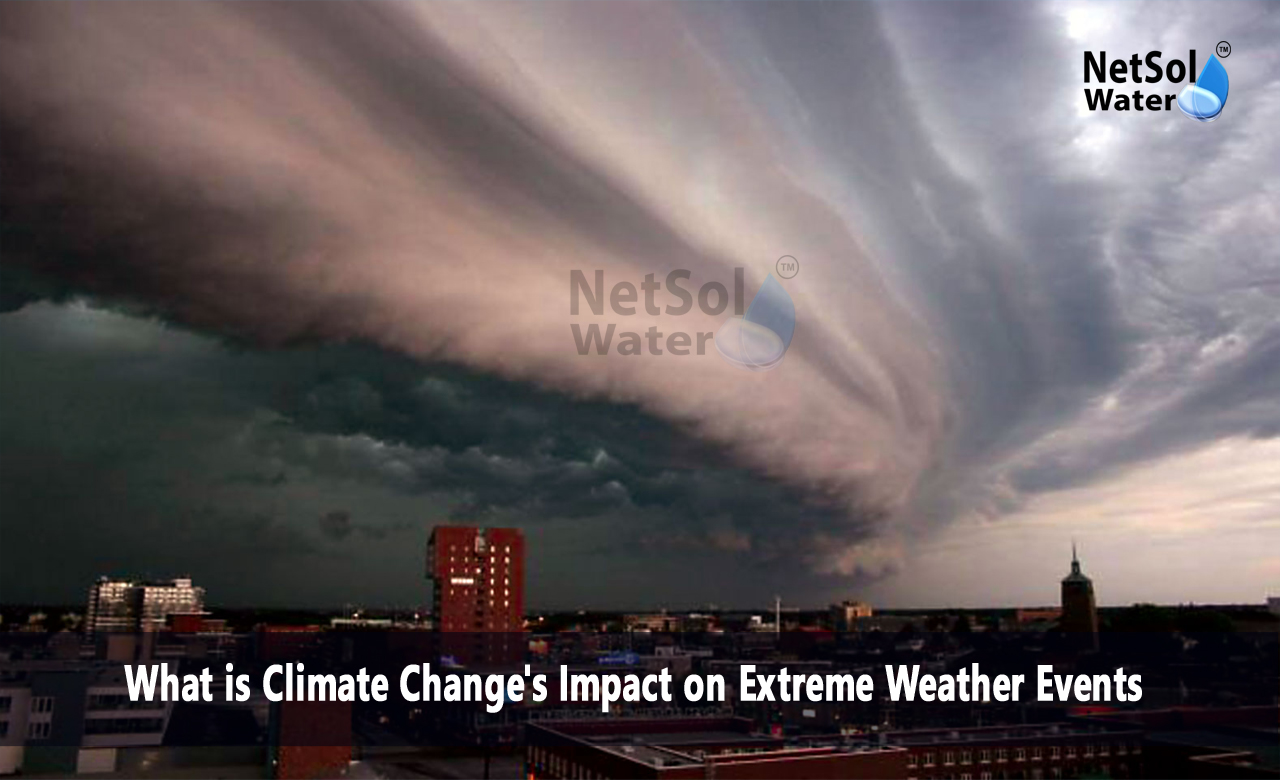What is Climate Changes Impact on Extreme Weather Events?
The biggest concerns around the world these days is climate change. It has an effect on significant changes in weather patterns and extreme weather occurrences, besides the rising temperatures. By understanding how extreme weather occurrences are affected by climate change, we can help prepare better and mitigate its effects.
Relationship Between Climate Change and Weather Events
The Earth's climate system is highly inter linked, but one thing that can be seen through the influence of climate change on weather events is that it is more evident than anything else. A few of the ways climate change is affecting the weather include:
· Increased Frequency of Heatwaves: Since global temperatures rise, heatwaves have become more common and prolonged, causing great effects on health, agriculture, and ecosystems.
· Enhanced storm intensity: the warmer oceans create more intensive hurricanes and typhoons that produce stronger winds and more considerable rainfalls.
· Disrupted Patterns of Rainfall: the changing rainfall pattern caused by global warming results in some areas of the world seeing heavy downfalls, while, in other regions, drought intensifies.
· Increase Sea Levels and Flooding the coasts: Thawed ice caps as well as thermally expanded sea water contributes towards increasing sea level. Flooding in storm surge will increase further.
· A New Normal: The timing of seasons is shifting, impacting agriculture, wildlife migration, and natural cycles.
How Climate Change Amplifies Extreme Weather?
Climate change does not cause extreme weather; it acts like a magnifierthat makes extreme weather more amplified and its impact is more widespread.
1. More Heat Trapped
Greenhouse gases trap more heat in the atmosphere, making surface temperatures warmer. This extra energy powers extreme weather.
2. Warmer Oceans
Many parts of the extra heat from greenhouse gases are absorbed by oceans, resulting in the following:
· Hurricanes become more intense due to higher evaporation
· Disruptions of marine ecosystems impact global weather patterns.
3. Atmospheric Pattern Disruptions
Climate change disrupts jet streams and other atmospheric circulation systems, causing even this indirect effects such as protracted droughts or entrenched storms in some regions.
4. Higher atmosphere moisture
Warmer air can hold more moisture, leading to heavier falls during storms and a higher chances of flash floods.
Prevention and Mitigation of Climate Changes Impacts on Weather
While the impacts of climate change are severe, proactive measures can be taken to minimize its impact on weather events.
1. Global Emissions Reduction
The first step in controlling climate change is to reduce greenhouse gas emissions. Renewable energy sources and energy-efficient practices will significantly reduce emissions.
2. Advanced Weather Forecasting Systems
Advanced technology in forecasting helps predict extreme weather events better so that preparation and response can be made more effectively.
3. Resilient Infrastructure
This means that the infrastructuresuch as drought-proof agricultural systems and flood-proof buildings—should be extremely resilient to adverse weather conditions.
4. Community Awareness and Education
Climate change education among communities increases their resilience in terms of adaptation towards the extreme weather.
5. Natural Ecosystem Protection
Forest, wetland, and mangrove preservation can serve as a kind of natural cushion against climate-related weather catastrophes such as floods and storms.
Examples of Regional Extreme Weather Events
Climate change and extreme weather-related events are felt differently across regions globally. Here is a selection of examples:
· Atlantic Hurricanes: Increased warming of the Atlantic Ocean has made ocean-based monsters like Katrina and Maria even more monstrous.
· Droughts in Africa: A prolonged dry season in the Sahel region of Africa has stricken millions by pushing food and water shortages up.
· Flooding in South Asia: The increasing climate change has resulted in extreme monsoons with extreme flooding in countries such as India and Bangladesh.
· Australia and California Wildfires: Rising temperatures combined with long dry seasons lead to frequent and powerful wildfires.
Adapting to a Changing Climate
· Early Warning Systems: A strong early warning system is a good tool to prepare communities for weather disasters about to strike.
· Climate-Resilient Crops: Climate-resilient crops mean food security, as they are resistant to extreme weather conditions.
· Water Management: Efficient water use and storage systems can mitigate the effects of droughts and floods.
· Urban Planning: Cities can be designed keeping in mind the concept of climate change such as green roofs and permeable pavements reduce heat and facilitate drainage.
The Future of Climate and Weather
Climate change is going to increase the impact of weather events, unless something is done. Predictions include the following:
· More frequent and severe hurricanes.
· Increased instances of flooding in coastal and low-lying regions.
· Drought will be longer that may affect the supply of water and agriculture.
· Heat-related illnesses and deaths will increase during summer.
Conclusion
The need to understand what impacts climate change holds for extreme weather events is an important building block toward a sustainable and resilient future. It's changing our planet's weather systems, from the intensified heatwaves to the alteration in rainfall patterns, in the most effective ways imaginable. The ability to mitigate this impact can come through emission reductions, enhanced forecasting, and adaptation strategies safeguarding communities all over the world. Through it all, the most potent tool remains collective action and commitment to sustainability.
Do you need an advice or assistance on selecting the best water and waste water treatment unit? We have solutions for all your problems!
Let us know your problem, our experts will make sure that it goes away.
For an assistance or related query,
Call on +91-965-060-8473 Or write us at enquiry@netsolwater.com



